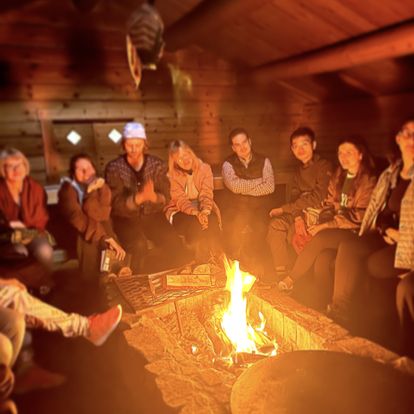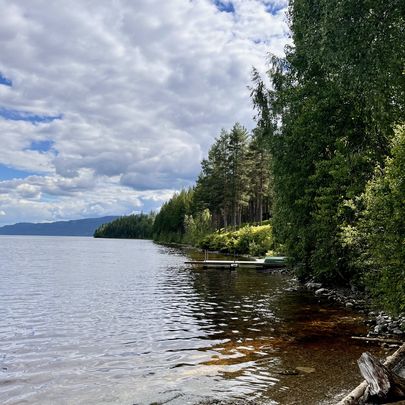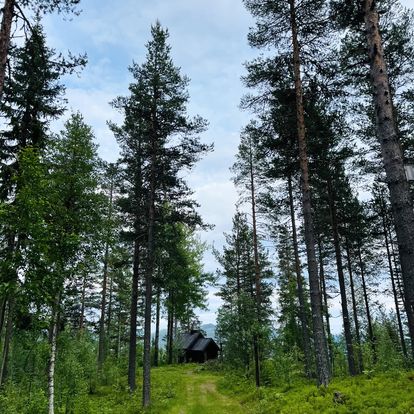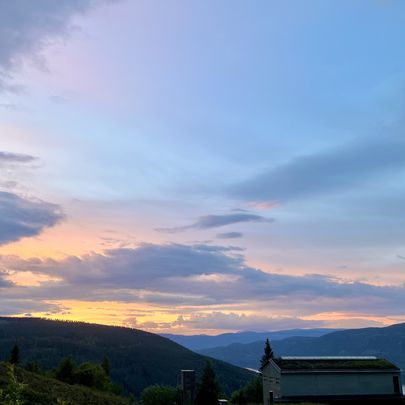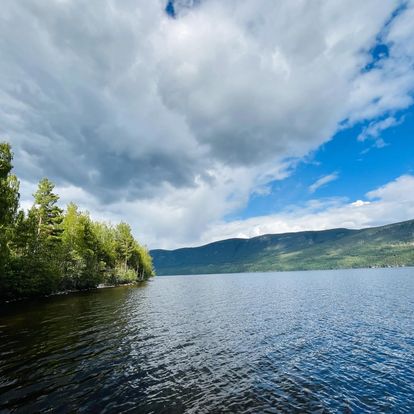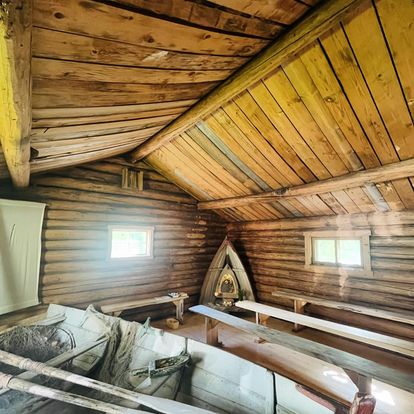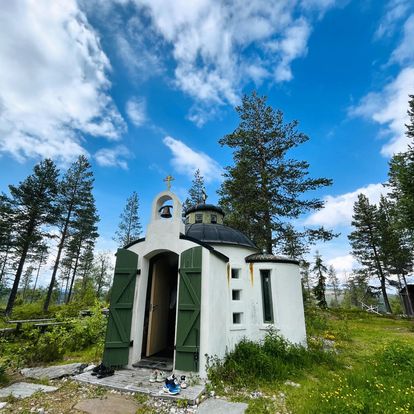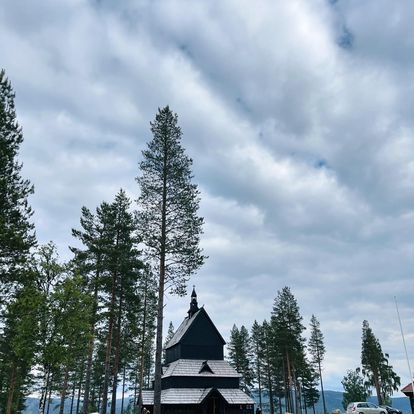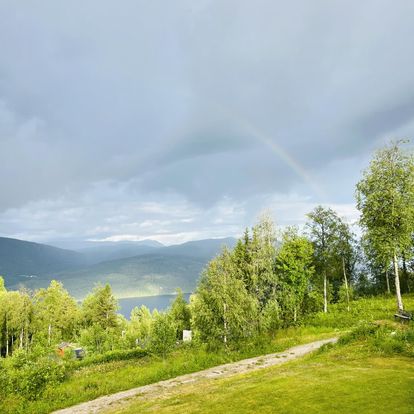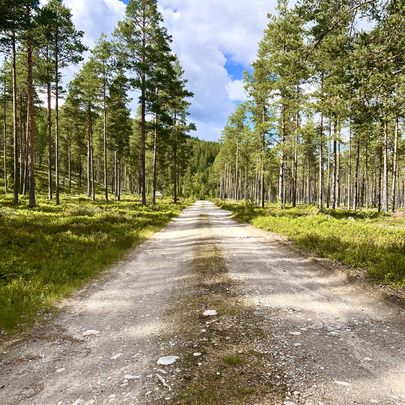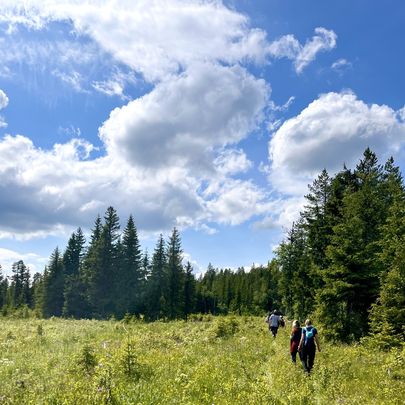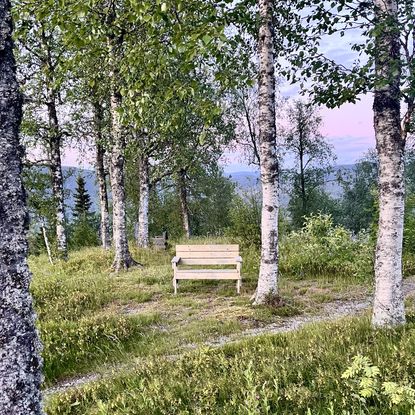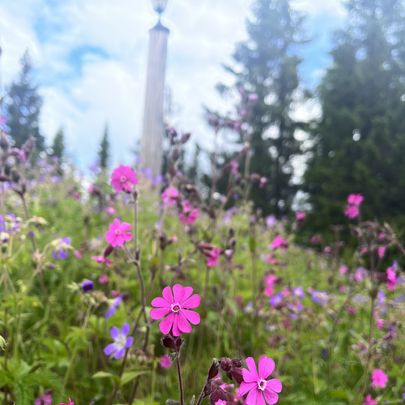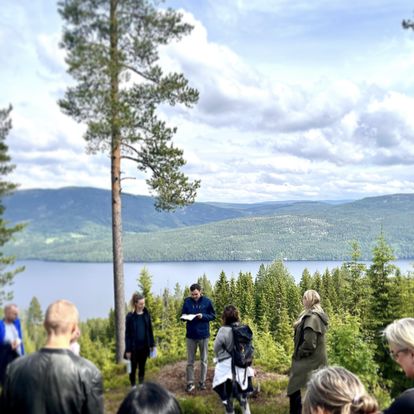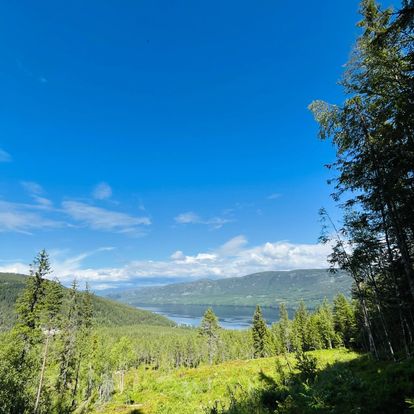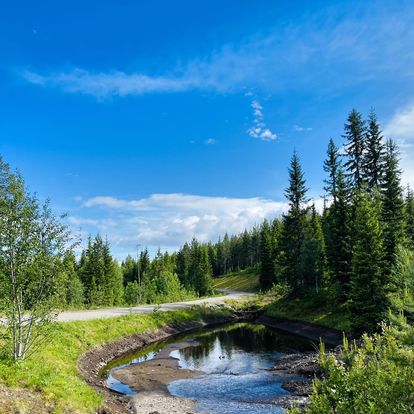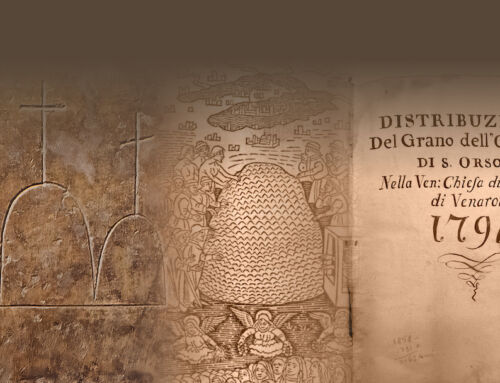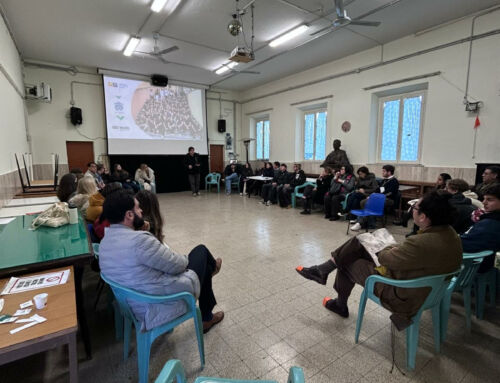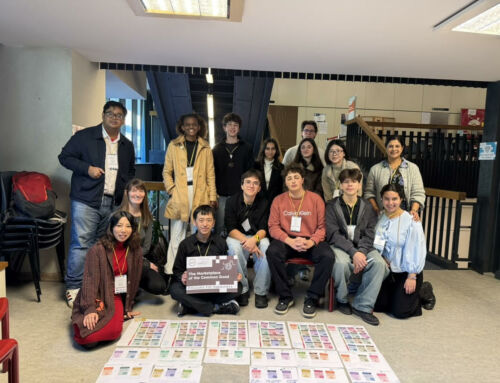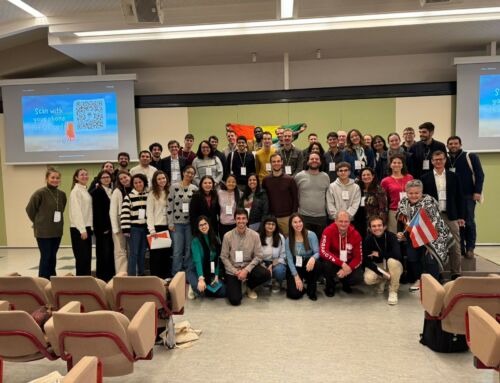Wondering & Wandering: when writing ‘revives’ the economy
by Stefano Rozzoni
The Wondering & Wandering: Writing Paths towards a New Economy writing retreat, held on June 10-16 in Lia Gård, Norway, was concluded a few days ago. It is a project which developed within The Economy of Francesco movement that combined writing activities (creative, scientific, poetic, etc.), nature walks, meditation, and community life to inspire reflections and create individual and collective actions in response to the complex economic challenges today.
Created and organized by Stefano Rozzoni and Maria Jordet, post-doctoral researchers affiliated with the Universities of Bergamo, Italy, and Inland Norway University of Applied Science, Norway – both participants in the Economy of Francesco since its start in 2019 – the project is intended for people with different backgrounds, including scholars, activists, entrepreneurs, and artists, but with the common interest for a place and time to develop their ideas. Another common point among the thirty participants, from all over the world (from Peru to Taiwan), was an interest in advocating for a paradigm shift in the way of doing and thinking about the economy – here understood in a broad and transdisciplinary way, and in the most etymological sense of the word as ‘stewardship of the common home’ – in inclusive, ethical, and pluralistic forms.
Wondering and Wandering, literally ‘marveling’ (but also ‘questioning’) and ‘walking’ is a wordplay that becomes a metaphor for the inseparable link between reflection and movement, mind and body, theory and practice that underlies the organization of the initiative. The economy, as Pope Francis has reminded us, can only change if we consider simultaneously three different languages – those of the head, hands and heart – accompanying concrete actions with theoretical reflections, besides recognizing the relevance of values in this process of transformation.
The initiative was held in an old farm that in recent years has become a retreat center for various types, thanks to the vision of a Norwegian family who lives there. It is located in Koppang, in the heart of a forest, where silence reigns. The trees, streams, butterflies and flowers, which are most splendid in June, do the talking. It is a context aligned with the Franciscan idea of ‘connection with creation’, that inspired the days of the retreat and the related activities. Indeed, the life of the Poverello was the common thread of four talks (offered, respectively, by the economist Luigino Bruni, the poet Wera Sæther, the literary critic Kari Løvaas, and the philosopher Arne Johan Vetlesen). During the walks in the woods, there were also the ‘Franciscan pills’ about the life and ethics of Francis, besides many discussions, both free and more structured, held around a bonfire.
Wondering and Wandering represents a creative way to bring the active and contemplative life into dialogue, dwelling on some of the most pressing ethical challenges of the contemporary world. Thus, not only do today’s economic emergencies become objects of attentive and critical scrutiny, even the possibility of imagining affirmative solutions is favored, in line with the perspective of ”reviving the economy” encouraged by Pope Francis. Launched by the Pope’s letter in 2019 addressed to young economists, entrepreneurs and change makers, with the invitation to gather in Assisi together with leading names in economy today The Economy of Francesco manifests itself in multiple activities: start-ups, academic publications, educational activities and calls-to-action around the world. More than 3,000 people from 150 countries explore this momentum in different ways. Wandering and Wondering is one of these modalities, in the gap between the academic and civil worlds, between the production of knowledge and introspective reflection, in which writing becomes a tool for caring for oneself and others.
Writing is particularly relevant in the economic context as a practice of creating “narrative capital”, a concept that, as explained by Luigino Bruni, highlights the performative character of texts in their ability to influence thoughts, emotions, and lifestyles, also by retelling past experiences in new formats aligned with the needs of contemporary society. We need stories for the present and imagination for the future, also, and above all, as alternatives to the often mistrusted stories that dominate mainstream media narration.
As the organizers note, “Writing is often perceived as an individual or solitary act, but the need to read the complexity of today’s economic problems – in the overlap of social and environmental issues, among others – demands rethinking it as an active exchange between different people and experiences. Thus, thinking and writing together becomes necessary to put on paper profound reflections, that are capable of leaving their mark.”
Wondering and Wandering has proven to be a particularly effective proposal, as can be seen in the feedback collected by the organizers at the end of the experience, which is currently being studied. They showed, for example, that many of the participants perceived the mutual, and beneficial, influence between the writing activity and the nature walks. Or that the retreat allowed important bonds to be formed among the participants. Or still that the spaces dedicated to prayer and meditation favored the maturation of a sense of belonging that expanded the perception and attention, both towards others and towards the natural environment.
Thus, the ‘writing retreat’ becomes an opportunity, not only for those who practice writing professionally, but also for those who explore it as a tool for existential research, in response to the daily frenzy. In this regard, the organizers add that “many people have emphasized how a slowing down of the pace of one’s lifestyle, also through the experience of silence, favors the development of generative thinking, to build a better tomorrow.”
While the participants will integrate the stimuli developed during the retreat into their own initiatives, projects and activities, Wondering and Wandering is preparing to return in new editions to encourage the creation of ever new workspaces, critical thinking and reflection regarding today. It is (also) in this way that it becomes possible to grow narrative capital for their communities, as the glocal development of a new, fraternal, and just economy, in the footsteps of Francis.

